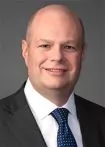- with readers working within the Retail & Leisure industries
- in Asia
Last week, on October 7, 2025, the Federal Deposit Insurance Corporation (FDIC), and the Office of the Comptroller of the Currency (OCC) (collectively, the "Agencies") issued two joint notices of proposed rulemaking (NPRs). First is an NPR to codify the elimination of reputation risk from their supervisory programs the "Reputation Risk NPR"). Second, is an NPR to define the term "unsafe and unsound practice" (the "Safety and Soundness NPR").
For the Reputation Risk NPR, the NPR, if finalized as proposed, would codify the practice announced by the Agencies this Spring that examiners would not examine for reputation risk going forward. Under the NPR, the Agencies would not take an adverse action (defined by the proposed rule to include the provision of negative feedback, including a report of examination, a memorandum of understanding, verbal feedback, or an enforcement action). The FDIC staff noted in its staff memo to the Board that "[e]xperience has shown that the use of reputation risk in the supervisory process does not increase the safety and soundness of supervised institutions because supervisors have little ability to predict ex ante whether or how certain activities or customer relationships present reputation risks that could threaten the safety and soundness of an institution." The FDIC staff memo on the Reputation Risk NPR also noted that "This change would also respond to concerns expressed in Executive Order 14331, Guaranteeing Fair Banking for All Americans, that the use of reputation risk can be a pretext for restricting law-abiding individuals' and businesses' access to financial services on the basis of political or religious beliefs or lawful business activities."
For the Safety and Soundness NPR, the NPR, if finalized as proposed would make amendments to Parts 4 and 305 of the C.F.R., respectively to define an unsafe and unsound practice for purposes of an enforcement action as "a practice, act, or failure to act, alone or together with one or more other practices, acts, or failures to act, that:
(1) is contrary to generally accepted standards of prudent operation; and
(2) (i) if continued, is likely to—
(A) materially harm the financial condition of the institution; or
(B) present a material risk of loss to the Deposit Insurance Fund; or
(ii) materially harmed the financial condition of the institution."
The Safety and Soundness NPR goes on to limit when The Agencies' examiners can issue a matter requiring attention or MRA in an exam "to an institution for a practice, act, or failure to act, alone or together with one or more other practices, acts, or failures to act, that:
(1) (i) is contrary to generally accepted standards of prudent operation; and
(ii) (A) if continued, could reasonably be expected to, under current or reasonably foreseeable conditions,
(1) materially harm the financial condition of the institution; or
(2) present a material risk of loss to the Deposit Insurance Fund; or
(B) materially harmed the financial condition of the institution; or
(2) is an actual violation of a banking or banking-related law or regulation."
While the NPR would place limits on examiners, it would not limit their ability to communicate suggestions and observations to enhance an institution's practices or operations, as long as examiners do not require the bank to take action as if a suggestion were the equivalent of an MRA.
Both NPRs are likely to be viewed by most institutions as a welcome deregulatory action, and are consistent with statements made by Comptroller of the Currency Gould and Acting FDIC Chairman Hill, as well as Federal Reserve Vice Chair of Supervision Bowman (note, the Federal Reserve did not join in the NPRs, but has made announcements regarding no longer supervising on the basis of reputational risk) to focus on material financial risk to a financial institution and move away from the non-material procedural issues often raised in bank exams.
Comments on the NPRs are due sixty days after publication in the Federal Register. Neither proposal has yet been published in the Federal Register as of the date of this publication.
The content of this article is intended to provide a general guide to the subject matter. Specialist advice should be sought about your specific circumstances.


